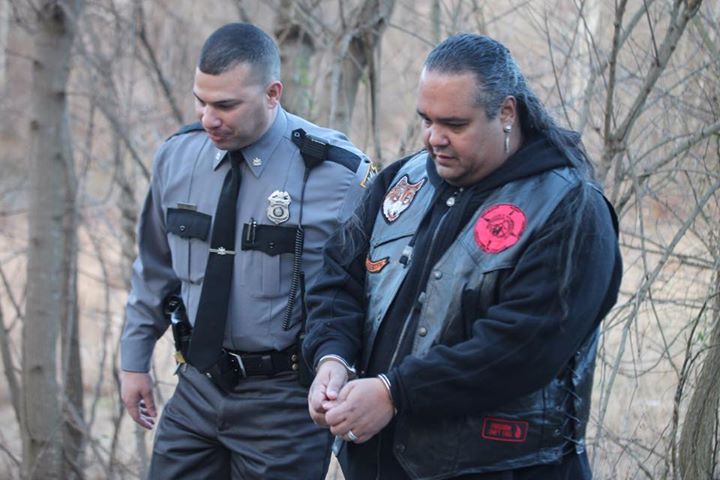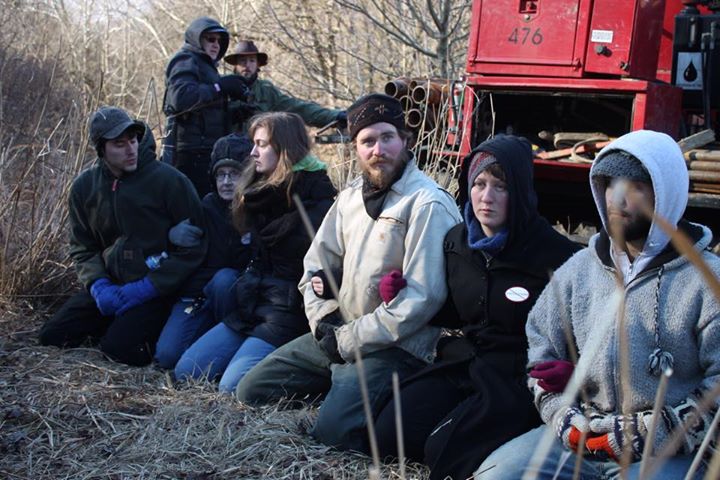January 5th, 2015
Eight protestors were arrested Monday morning at a pipeline testing site in Lancaster County, police have confirmed. The demonstrators included local residents opposing the proposed Atlantic Sunrise project and members of a Native American tribe who claim the pipeline company is improperly drilling test bores on sacred grounds in Conestoga Township.
More from Lancaster Online, which had a reporter on the scene:
Eight of the roughly three-dozen protesters were charged with trespassing after refusing to leave when PPL, the property’s owner, said they had to.
Protesters gathered near the drilling site around 9 a.m. and walked about a quarter-mile to where workers were drilling along the Conestoga River.
The workers stopped drilling about 10 minutes after the protesters arrived at the site around 9:20 a.m.
However, drilling had resumed by about 12:25 p.m., and no protesters remained.
“Everyone was peaceful,” said Chief John Fiorill with the Southern Regional Police Department. Fiorill noted it was not the first time protestors gathered on the site owned by PPL over the last two weeks, nor does he expect it will be the last.
A Williams spokesman said the company is drilling to collect soil samples that will help determine the least-invasive construction method for its proposed Atlantic Sunrise project. The interstate pipeline would send natural gas from the Marcellus Shale southward to markets on the east coast.
The project has faced fierce opposition from people in Lancaster County who have raised concerns about how it will effect the environment, public safety and property values.
“Our immediate goal is to prevent the pipeline from going in and doing what we can in a peaceful way to protect our land,” said Brenda Sieglitz, a member of the group No Lancaster Pipeline which organized Monday’s protest.

Chief Carlos Rivera of the North Arawak Tribal Nation is arrested protesting the Atlantic Sunrise pipeline in Conestoga, Pa. (courtesy of Michelle Johnsen)
Chief Carlos Rivera, a leader of the Northern Arawak Tribal Nation, was among the eight protestors arrested. According to his Facebook page, Rivera believes Williams’ drill bores are desecrating a site sacred to his tribe.
“I know there are some sensitive cultural resources out there and that’s one of the reasons we’ve been taking the steps we’ve been taking to make sure we treat those with respect,” said Williams spokesman Chris Stockton, who could not confirm whether the company is operating on a sacred Northern Arawak site.
Rivera cooperated with police officers and was released on a summary citation, Fiorill said.
However, the other seven protestors, who linked arms when officers attempted to arrest them, were charged with trespassing in the third degree and could face up to a year in jail and $250 in fines.


